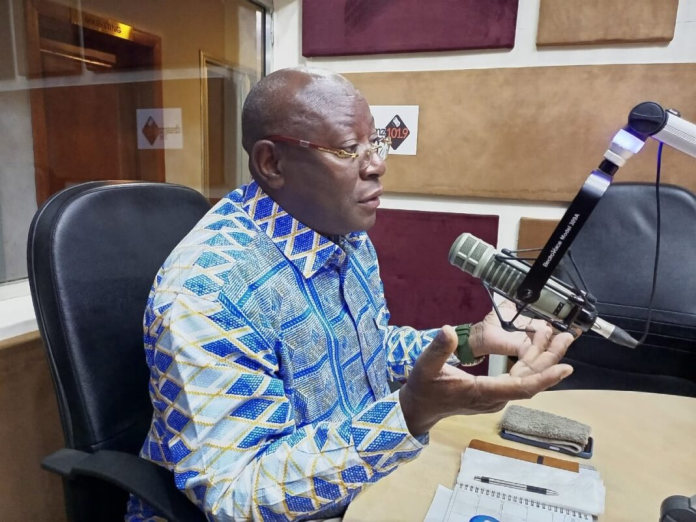Politics
Former DCE Reveals Financial Struggles on GH¢5,000 Monthly Salary


Thomas Duanab Wuni Pearson, the immediate-past District Chief Executive (DCE) for Talensi in the Upper East Region, has opened up about the financial toll of public service, revealing that his GH¢5,000 monthly salary left him struggling to support his family amid growing political and communal demands.
Speaking candidly on Bolgatanga’s Dreamz FM, Pearson contrasted his current situation with his previous role as a Ghana Health Service (GHS) employee, stating, “I became worse off by becoming a DCE financially, especially.” He explained that the modest salary, coupled with rising living costs and constituent expectations, made it nearly impossible to balance household needs with the unofficial obligations of political office.
“GH¢5,000 cannot feed my family, yet I was forced to live on it,” he said, highlighting the added strain on rural DCEs who often lack access to resources available in urban districts. “The economy had taken a nosedive, and so many necessities were out of reach. Rural districts suffered, and our remuneration was terrible.”
Pearson’s remarks shed light on systemic challenges facing local government officials, particularly in underserved regions. While DCEs are pivotal in grassroots development, their compensation often unchanged for years fails to reflect the financial pressures of their roles, which include community engagements, travel, and personal contributions to local causes.
His disclosure has reignited discussions about equitable pay for public servants, especially those in rural postings where operational budgets are tight and personal sacrifices are routine. As Ghana grapples with economic recovery, Pearson’s experience underscores the need for a review of remuneration structures to retain capable leaders in local governance.
The former DCE’s account also raises questions about the sustainability of political service in a high-inflation environment, where officials must choose between public duty and personal financial stability. Without reforms, the disparity may deter qualified individuals from taking on roles critical to national development
Source: newsghana.com.gh

-

 Showbiz2 weeks ago
Showbiz2 weeks agoRemembering Ama Endorsed: How she redefined entrepreneurship in Ghana
-

 Showbiz2 weeks ago
Showbiz2 weeks agoMy wife didn’t know what marrying a public figure meant until our wedding leaked
-

 Showbiz3 days ago
Showbiz3 days agoIt’s a boy! Medlin Boss celebrates Chizzy Alichi’s newborn with heartfelt prayers
-

 Politics1 week ago
Politics1 week agoMahama and Akufo-Addo Forge Symbolic Unity at Kwahu Easter Gathering
-

 Showbiz2 days ago
Showbiz2 days agoProphet Gideon Danso marries his fiancée with just GHC 600
-

 Showbiz2 weeks ago
Showbiz2 weeks agoChez Amis gifts herself Rolls Royce Cullinan on birthday
-

 Showbiz1 week ago
Showbiz1 week agoThe rise, music, and drama of portable
-

 Politics5 days ago
Politics5 days agoPolitical Parties to Stage Nationwide Protest Over Suspension of Chief Justice, Termination of Appointments










